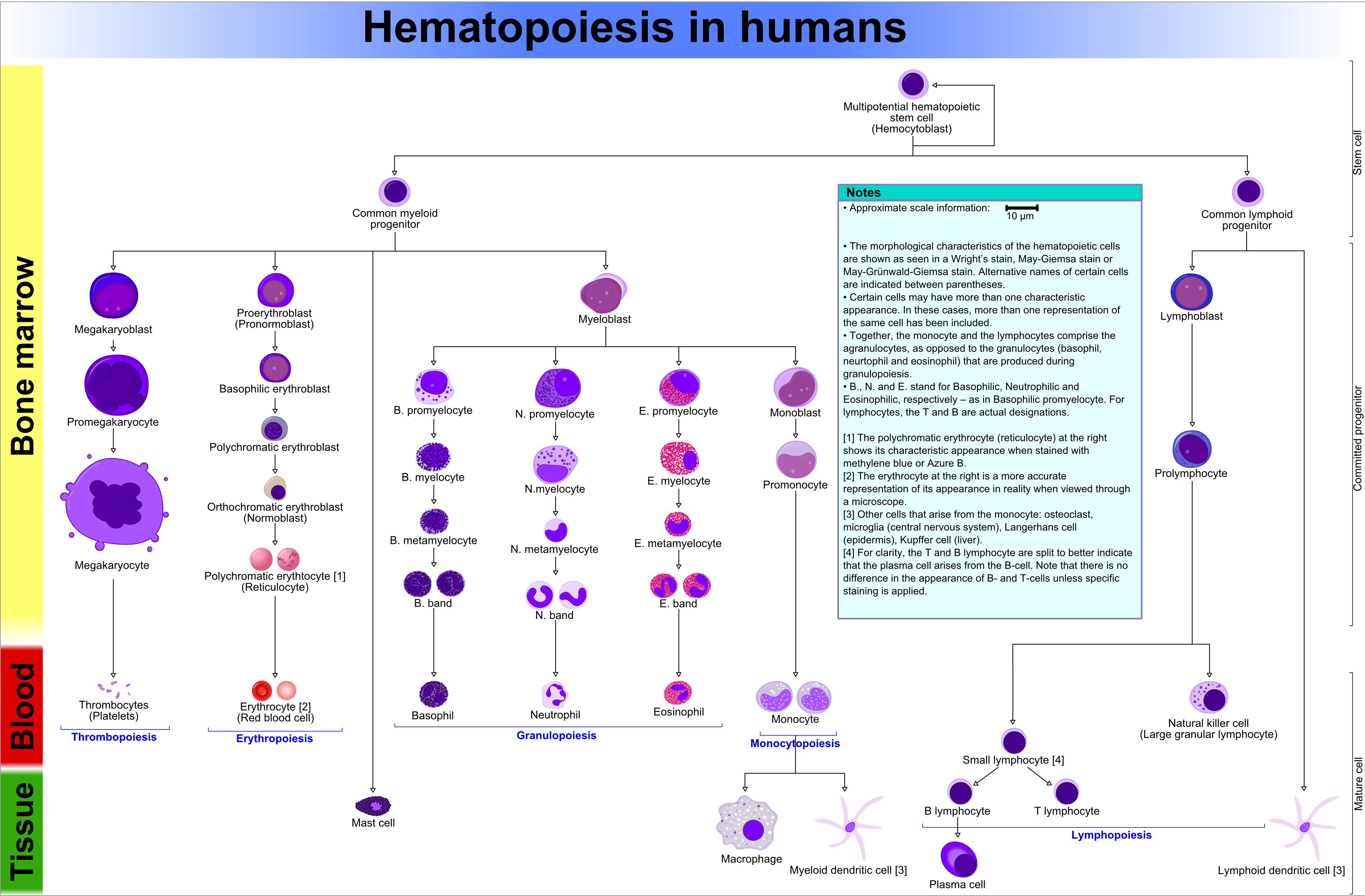 (image by A. Rad)
(image by A. Rad)
Acute promyelocytic leukemia is caused by a chromosomal translocation of the promyelocytic leukemia gene to the retinoic acid receptor-alpha gene, which blocks terminal granulocytic differentiation at the promyelocytic stage. Treatment with all-trans retinoic acid (ATRA) relieves this blockage and the promyelocytes go on to differentiate into granulocytes. This treatment results in complete remission in > 90% of patients.
The differentiation syndrome (also know as retinoic acid syndrome and ATRA syndrome) is a cytokine release syndrome that is seen in ~1/4 of patients after induction chemotherapy with ATRA or arsenic trioxide (ATO) for acute promyelocytic leukemia. The symptoms of this potentially fatal syndrome are related to the effects of cytokines released from malignant promyelocytes.
 Patients have weight gain, fever, hypoxemia, respiratory distress, hypotension, renal and hepatic dysfunction, serositis (resulting in pleural and pericardial effusions), alevolar infiltrates (hemorrhage and myeloid cells), interstitial infiltrates (edema and myeloid cells), and peripheral edema. The portable chest radiograph above reveals bilateral airspace opacities and bilateral pleural effusions. These findings are nonspecific, but in the patient with acute promyelocytic leukemia on induction therapy with ATRA or ATO, differentiation syndrome should be considered.
Patients have weight gain, fever, hypoxemia, respiratory distress, hypotension, renal and hepatic dysfunction, serositis (resulting in pleural and pericardial effusions), alevolar infiltrates (hemorrhage and myeloid cells), interstitial infiltrates (edema and myeloid cells), and peripheral edema. The portable chest radiograph above reveals bilateral airspace opacities and bilateral pleural effusions. These findings are nonspecific, but in the patient with acute promyelocytic leukemia on induction therapy with ATRA or ATO, differentiation syndrome should be considered.
Patients are treated with dexamethasone until symptoms resolve. In severe cases (patients with respiratory distress or acute renal failure) ATRA and ATO are stopped until the patient recovers.
References
- Rego EM, De Santis GC. Differentiation syndrome in promyelocytic leukemia: clinical presentation, pathogenesis and treatment. Mediterr J Hematol Infect Dis. 2011;3(1):e2011048.
- Luesink M, Jansen JH. Advances in understanding the pulmonary infiltration in acute promyelocytic leukaemia. Br J Haematol. 2010 Nov;151(3):209-20.
No comments:
Post a Comment
Note: Only a member of this blog may post a comment.